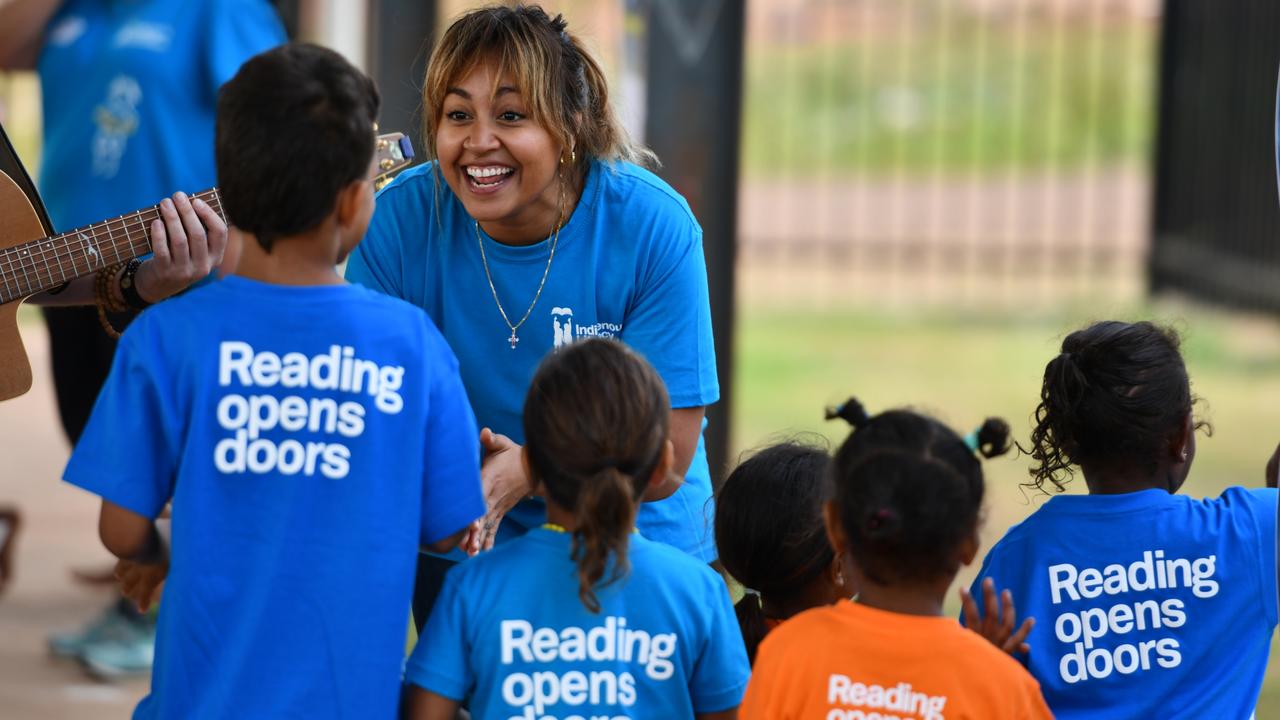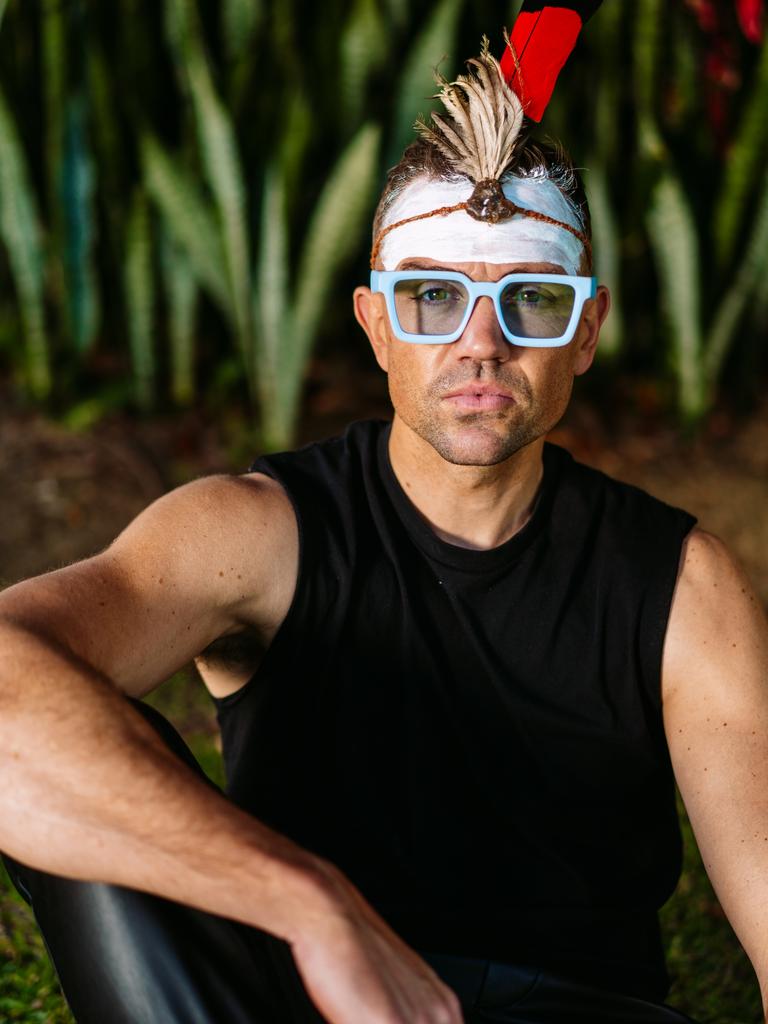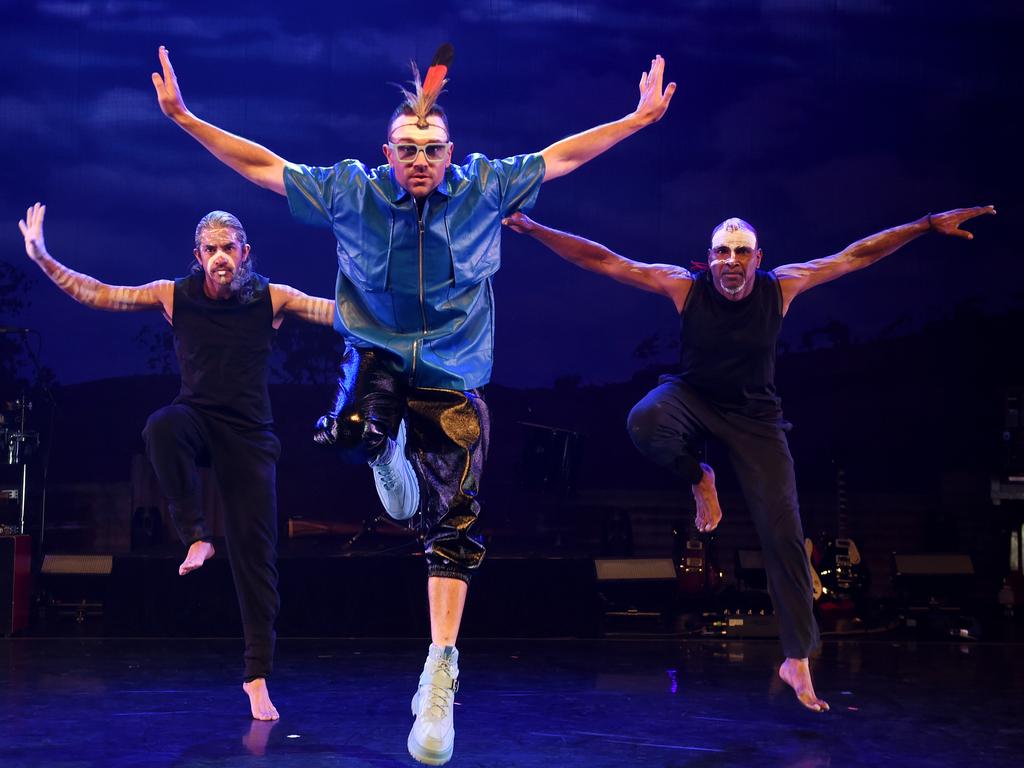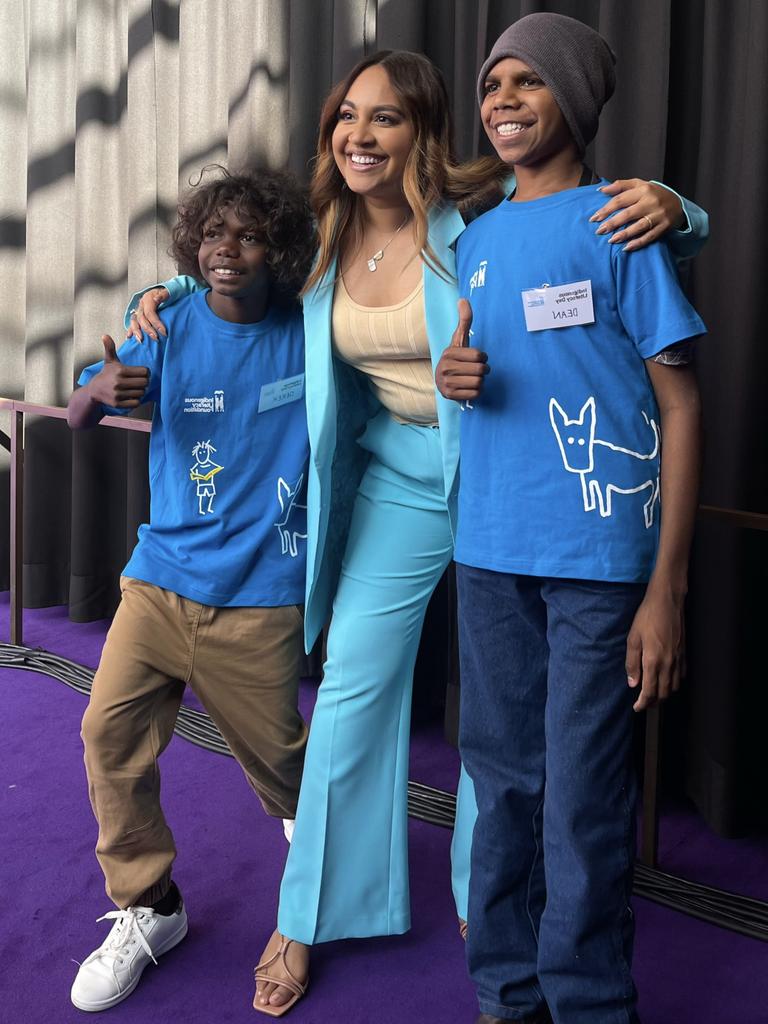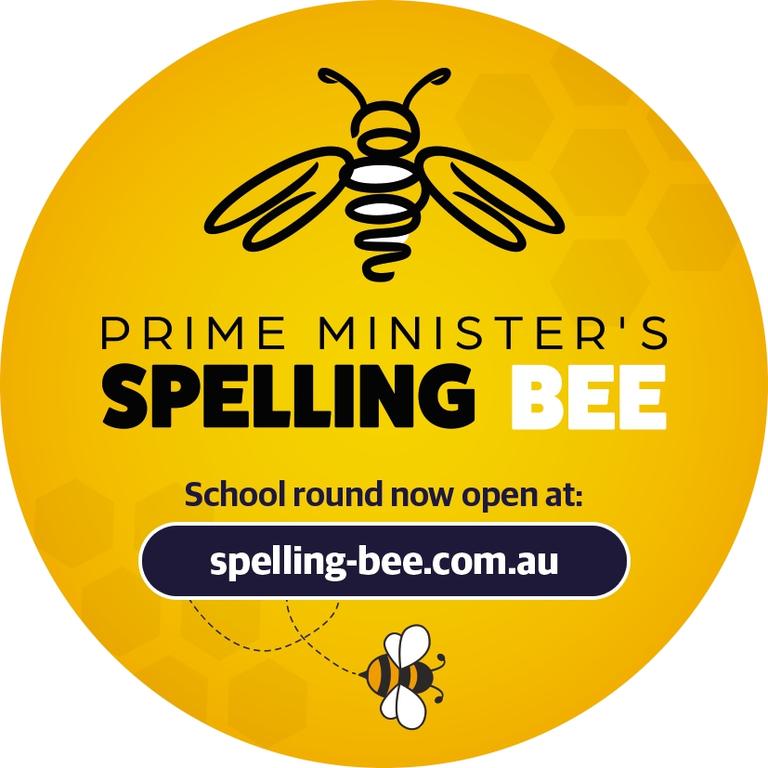Belting out a favourite tune with your buddies can achieve much more than just lifting the group mood, said multi-talented First Nations musician and dancer Mitch Tambo.
Passionate about the power of lyricism* in learning, in particular the survival and teaching of First Nations languages, the proud Gamilaraay man called music “amazing” for lifelong literacy*.
“When we’re talking about literacy, the repetitive nature of certain hooks in songs, melodies* and riffs*, they become these things called earworms*,” Tambo said. “They’re little hooks: you walk away from that lesson, you’re singing this melody and (it’s) full of information. Even though you didn’t think you retained* it, you actually did through the power of song.”
Music helps children “navigate their way through certain things in their life”, he said, adding:
“(Music) can help kids with speech impediments*, stuttering and … their educational journey. Being a First Nations person, a lot of our law, our culture, our protocol* is gifted and passed down through the concept of song.”
The father of four – in Sydney from Melbourne this weekend performing in Walanbaa Yulu-Gi with world-renowned* dance company Burn the Floor – said music had a “fundamental”* role to play in education.
“Music can step up by people using it as a tool to educate kids and draw kids into that learning experience around language and other fundamental practices,” Tambo said.
“Through lyrics in particular, you can gift someone certain elements of … not only their language but their identity(,) and I think when someone has a stronger idea of their identity and sense of self, the foundational roots are planted nice and firm.
“Someone’s more likely to make positive choices because they’ve got a more centralised idea around self-love and self-awareness. I think language and lyric … is just so, so very important.”
From earworm to bookworm could well be the catchcry* for Indigenous Literacy Day (ILD) on September 6, when performers including Indigenous Literacy Foundation ambassadors* Jessica Mauboy and Justine Clarke will join children from Barunga Remote Community School in the first ever ILD livestream from the Sydney Opera House.
“For me, literacy is enhanced* through the power of music,” Mauboy said. “I communicate, share stories and emotions through my music, and this has been reinforced throughout my life – it was very much part of my childhood.”
Joanne Lee, one of the reigning champions of the Prime Minister’s Spelling Bee, also engages with language and story through music.
“Sometimes when I listen to music, there are words that I don’t know … so I search it up or ask my parents and I think that helps,” the Year 5 super speller said. “(Having a story in the song) makes it more interesting and makes you want to listen to more.”
National champions in the Prime Minister’s Spelling Bee win a trip to Canberra to meet the PM as well as other great prizes for themselves and their school. The school round is on now until Friday 18 August at spelling-bee.com.au
POLL
GLOSSARY
- lyricism: beautiful expressions of personal thoughts and feelings in writing, poetry and music
- literacy: the ability to spell, read and write
- melodies: tunes, often forming parts of larger pieces of music
- riffs: short, repeated patterns of notes in popular music
- retained: kept, continued to hold or carry or remember
- renowned: famous, admired, well-known and praised for something good
- fundamental: basic, essential, forming the basis from which everything follows
- catchcry: a well-known, frequently used phrase associated with a particular group or event
- ambassadors: people who represent, speak for, or promote a particular organisation or group
- enhanced: better than before, to improve the quality, amount, or strength of something
EXTRA READING
PM’s bold a-m-b-i-t-i-o-n-s for Bee
Why emojis are so dead right now
Young Aussie musos making it overseas
Song to save Indigenous languages
QUICK QUIZ
- Mitch Tambo is passionate about the survival and teaching of what?
- Where does Tambo say that earworms come from?
- What is happening at the Sydney Opera House on September 6 and who will perform?
- Jessica Mauboy said that the power of music enhances what?
- Joanne Lee is the reigning champion of what competition?
LISTEN TO THIS STORY
CLASSROOM ACTIVITIES
1. What helps you?
What helps you to learn something new? Write a list of your top tips for learning new information or a new skill.
Time: allow 25 minutes to complete this activity
Curriculum Links: English, Science, Personal and Social Capability
2. Extension
“From earworm to bookworm”: create a poster that includes this idea. The purpose of your poster is to encourage teachers to understand how music can help in kids’ learning and literacy
Time: allow 45 minutes to complete this activity
Curriculum Links: English, Science, Visual Communication Design
VCOP ACTIVITY
The power of music in learning
Objective: To discuss and reflect on the role of music in learning and literacy based on the information from the article.
Instructions: Find a partner to read the article about the power of music in learning and literacy and then complete the follow task.
Take turns discussing the following questions and sharing your thoughts based on the information in the article:
a. According to Mitch Tambo, why does he consider music to be “amazing” for lifelong literacy?
b. How do repetitive hooks in songs, melodies, and riffs help in retaining information?
c. In what ways can music help children in their educational journey, as mentioned by Mitch Tambo?
d. How does Jessica Mauboy use music to communicate, share stories, and express emotions?
e. Joanne Lee, a champion speller, mentions that music helps her learn new words. How does music assist her in this regard?
f. What is the significance of Indigenous Literacy Day, and how is music connected to it?
After discussing the questions, share your own experiences with music and learning. Have you ever learnt something new through a song? Have you used music to remember information?
Now, let’s think about a song that you enjoy. It could be a song with catchy lyrics or a melody. Share the name of the song with your partner.
Discuss how this song makes you feel and if it has helped you remember certain things, like lyrics or a story from the song.
Remember, music can be a powerful tool in learning and remembering. Use your creativity and have fun discussing and exploring its potential in education!
Extension
Imagine you have to create a song to help you remember something important for school, like multiplication tables or historical facts. What would the song be like? What kind of melody or rhythm would you use? What would you like it to help you remember or learn?
Try creating a short song together based on a topic you’re currently learning in school.
